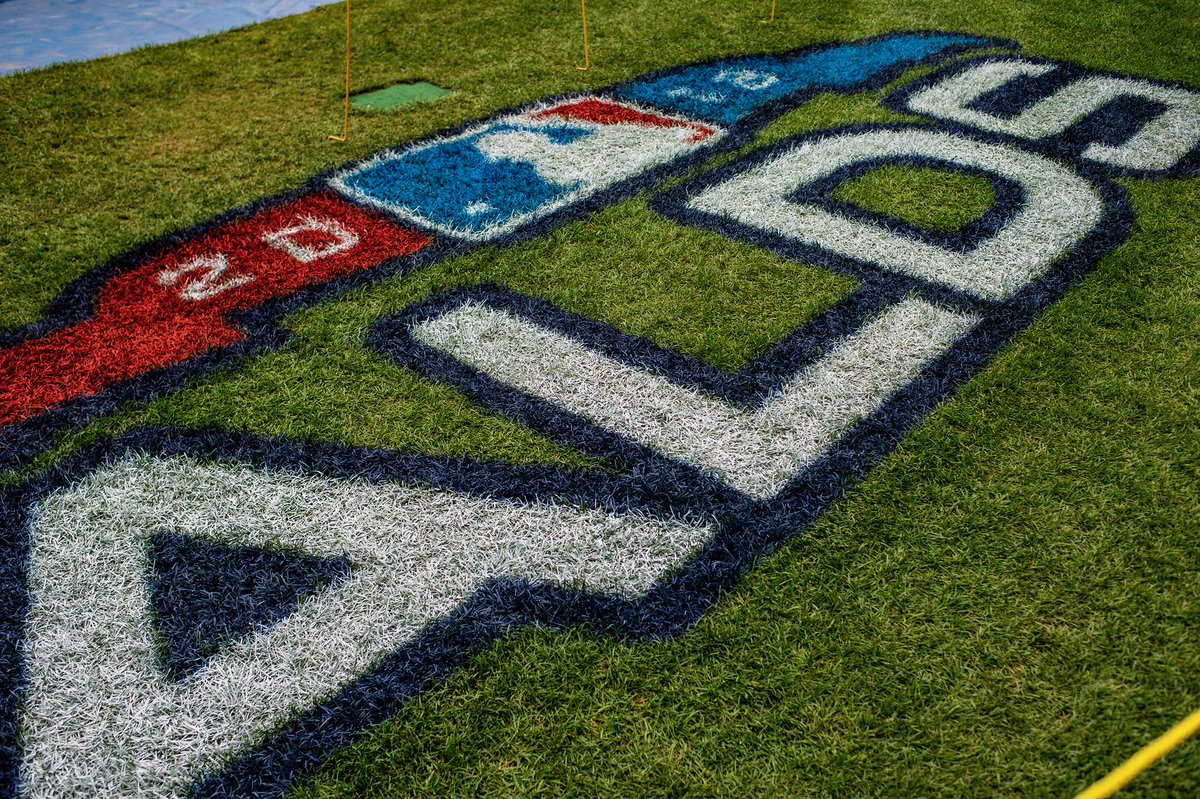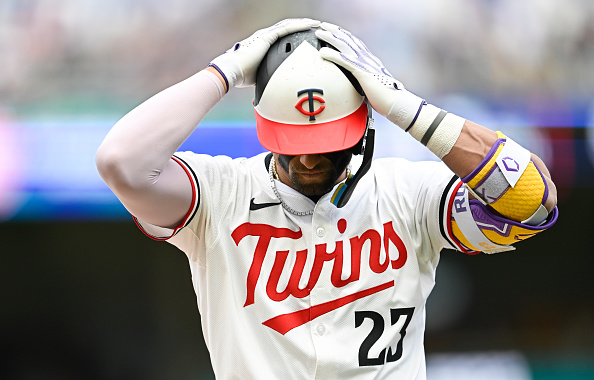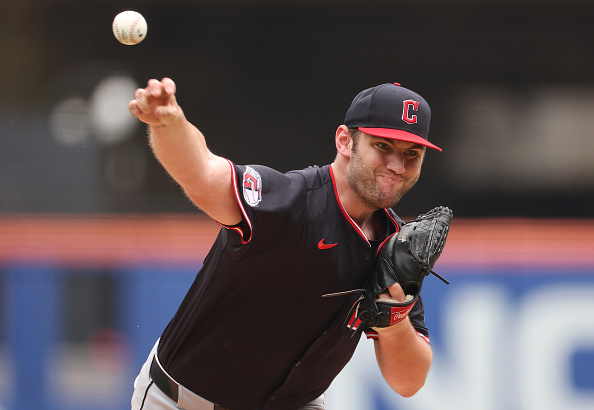Following a convincing New York Yankees victory over the Oakland Athletics in the American League Wild Card Game, the greatest rivalry in sports will meet in the postseason for the first time since 2004.
After meeting in the ALCS in 1999, 2003, and 2004, the Boston Red Sox and New York Yankees will square off in the ALDS for the first time in the history of this illustrious rivalry. But no one player remains from the classic 2004 ALCS. A new chapter of the Red Sox-Yankees rivalry has officially begun. Instead of the trademark Jason Varitek and Alex Rodriguez fight, this season’s bad blood came from Joe Kelly and Tyler Austin.
Putting all of the shenanigans aside, the Red Sox enter this series after going 108-54 in the regular season, beating the Yankees by eight games in the American League East race. However, the matchup between these two teams was a 10-9 edge in favor of the Red Sox.
None of that matters, however, when the stakes are higher, and the lights shine brighter. With Game 1 of the series on Friday, it’s time to see how these two ball clubs fair against each other.
The Manager Battle: Alex Cora vs. Aaron Boone
Regardless of your opinions, or allegiances to your respective club, you have to sit back and appreciate just how well these two managers did in their first seasons managing a major league team.
However, in October, a lot of the time it becomes a testament to the in-game managing skills of the two men tasked with the job. In this case, based on what Yankees fans say about their rookie manager, the advantage rests with Alex Cora.
Not even because Cora is a wizard when it comes to handling the bullpen, but there have been numerous occasions this year where Aaron Boone has either stuck with a starter too long or gone to the wrong reliever in a key spot. Cora does too, but Boone does it a lot more often.
Based on the managerial skills of the two, this matchup advantage belongs to the Red Sox.
Pitching Rotation
It’ll be interesting to see how the Yankees play this out. Having used Luis Severino in the Wild Card game, the Yankees’ Game 1 starter will be J.A. Happ. But while Happ has had good numbers against the Red Sox in the past, he has yet to face them in October.
On top of that, he’s only made three postseason starts in his ten outings.
But based on likely matchups, here’s how the series should go:
Game One: Sale vs. Happ -> Advantage Sale.
Game Two: Price vs. Tanaka -> Advantage Price.
Game Three: Sabathia vs. Eovaldi -> Advantage Sabathia.
Game Four (if necessary): Severino vs. Sale -> Advantage Sale.
Game Five (if necessary): Price vs. Happ -> Advantage Happ.
The Red Sox should hold the advantage from a sheer starting pitching perspective, disregarding all prior postseason history for each pitcher here. However, with Sale’s health status in question, and Price’s inability to perform against the Yankees with any sort of consistent basis in his Red Sox career, this should bode for a tough game each night.
However, at full strength, the Red Sox hold the advantage here.
Bullpen
This really isn’t much of a debate. Considering the Red Sox just won 108 games—setting a new franchise record—they still do not have a viable option to pitch in the eighth inning. Many indicated it could be Ryan Brasier, while others think it could be Matt Barnes. The moral of the story here—the Red Sox have no definitive solution that makes anybody confident.
As for the Yankees, they roll out closers to stay in shape. Whether that be Aroldis Chapman, Dellin Betances, Zach Britton, David Robertson or Chad Green, the New York Yankees have a plethora of guys who can pitch multiple innings on any given night.
Which brings up something interesting—Craig Kimbrel. The man who cannot pitch unless it’s the ninth inning and a save situation. He couldn’t locate at all in the 2017 ALDS against the Houston Astros, and it ultimately led to the Red Sox elimination last year. However, how will he bounce back in 2018? That remains to be seen.
The Yankees without a doubt own the advantage in the bullpen, which could prove costly for the Red Sox if their starter can’t give them four or five innings.
Starting Lineup
From top to bottom, the New York Yankees have an absolutely stacked lineup. With former MVP Andrew McCutchen leading off, all the way down to Gleyber Torres batting ninth, the Yankees can come out and punch you in the mouth at any given time.
Coming off of a regular season in which they set an MLB record with 267 home runs, the Yankees can really slug their way back into games, or to gain separation from their opponent.
As for the Red Sox, they too have a potent offense. However, it’s incredibly top-heavy. Not having the weapons to really do much after the fifth hitter in the lineup, the Red Sox offense becomes dormant if the likes of Mookie Betts and J.D. Martinez aren’t clicking.
Based on sheer depth, the advantage here goes to the New York Yankees. However, 1-5 is a lot closer than some might think—considering the Red Sox have two MVP candidates in their lineup.
Bench Players
In all likelihood, the benches could look like this on Friday:
Red Sox Yankees
Blake Swihart UTIL Austin Romine C
Christian Vazquez C Neil Walker UTIL
Brock Holt UTIL Greg Bird 1B
Steve Pearce 1B Brett Gardner OF
After combing all of their numbers, the accumulative OPS of the Boston Red Sox bench is .709, while the Yankees’ is just .682. The Red Sox have better numbers across the slash-line, and it is probably a good indicator as to how important the Red Sox bench will be in this series.
The bench advantage goes to the Boston Red Sox.
Defense
Last but not least, we come to the defensive aspect of the game. While defense is incredibly undervalued in today’s world, especially if you can hit the long ball, it still is important for when the ball is put in play. The Yankees have one of the best defensive shortstops and center fielders in the MLB, while the Red Sox have one of the best defensive outfields in baseball.
On top of that, the Red Sox ranked seventh in baseball with just 77 errors on the season, while the Yankees ranked nineteenth with 93 errors. Errors aren’t the be all, end all number on how to rank a team’s defensive skill-set, but the Red Sox have gold glove potential at five positions, while the Yankees have that at just two or three.
The defensive advantage goes to the Red Sox.
However, despite the Red Sox holding an advantage in four of the six categories, that doesn’t mean they’re a lock to win this series. Question marks surrounding Sale’s health, Price’s postseason struggles, and Rafael Devers’ inconsistencies, to name a few. These are pretty significant issues the Red Sox will have to get solutions for as soon as possible.
That being said, one of the more important advantages that wasn’t discussed was the concept of home-field advantage, that the Red Sox earned as one of the many awards that came with the MLB’s best record. The venue should pay huge dividends in this series, and with three games out of the best-of-five slated to be played at Fenway Park, the Red Sox should be able to win this series.
Series result: Red Sox win the series, 3-2.







